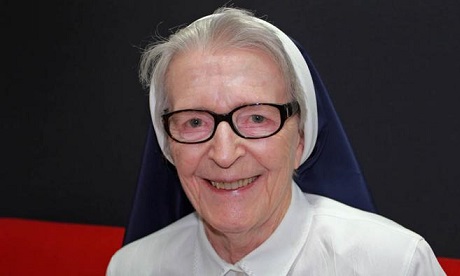HIV/AIDS was a killer in the 1980s.
At the time Queensland’s premier, Sir Joh Bjelke-Peterson, thought it was a punishment from God.
Mike Ahern, who succeeded Bjelke-Peterson as premier in 1987, claims health officials warned Bjelke-Peterson HIV/AIDS could wipe out entire Queensland communities unless action was taken.
Nonetheless, Bjelke-Peterson refused to allow indigenous Australians and Torres Strait Islanders from being screened for the virus.
A Brisbane Sister of Mercy, Angela Mary Doyle, decided to defy his wishes.
She was the administrator of Mater Hospital and decided to help the Queensland AIDS Council.
This involved creating a link between the Council, the Sisters of Mercy and the hospital so she could channel federal funds without Bjelke-Peterson’s knowledge.
The hospital also provided the Council office space and three houses where AIDS patients could stay rent-free.
“It seems to me that if we are to stand up and be counted, we need a great deal of love in our hearts.
“There’s a whole world out there desperately in need to impact through empathy,” she says.
“We [the Sisters] waited, as did many others, for the medical profession, the churches (or) anyone to speak out against this stance of the government … but nothing happened.”
There was a lot of ignorance about how the virus was spread. Many thought it could be contracted simply by touch.
“At the outset, I could foresee some serious problems.
“I knew nothing of the virus, nothing of how it was or wasn’t transmitted and I wondered how I could be of assistance to people whom I had never met and about whose lifestyle and needs I knew nothing.
“However, what I perceived as problems became moments of learning for us all.”
As a result of their secret funding arrangement, the federal health minister at the time, Dr Neal Blewett, later described the Sisters of Mercy as “the most altruistic of money launderers”.
Angela also discovered how to help AIDS sufferers while comforting the partner of a man who had just died from HIV.
The man threw himself across the bed where his dead partner lay moments after he had died and she put her arms around the man and held him.
“I realised that here were two men loved by God, as much as others and I are loved,” she said.
“At that moment, all my fear of not knowing how to help these men left me. I realised it was all a matter of love.”
She worked with and helped AIDS sufferers for seven years, until a change of government allowed sufferers to deal with the government and community directly.
Source
Additional reading
News category: World.




